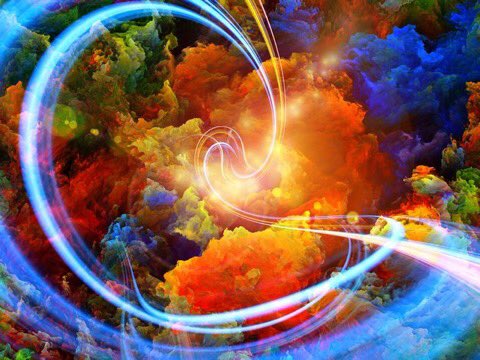The ancient wisdom traditions have much to say about the nature of consciousness—that it’s non-local, and that it transcends our linear constructs of space and time and our physical bodies. And that it doesn’t reside in the brain, or anywhere in the body, for that matter. Yet, at the same time, it’s everywhere. In the body. But not of the body. Also, that it’s omnipresent and immortal, preceding bodily birth and surviving bodily death.
For our thinking brains, this stuff may be just a bit too perplexing to wrap our heads around…such stuff as dreams are made on.
These constructs are also firmly rooted in the global healing traditions, whose cosmologies and approaches to health, illness, living and dying, reflect these notions of consciousness. These traditions understand the intimate and instantaneous links between thoughts, feelings and the physical body; they understand that thoughts and feelings are consummate players in the orchestra of our lives and are intimate and instantaneous effectors of health outcomes. They understand that what we think and feel affects not only our own bodies, not only everything within us, but everything beyond us. In fact, there is no separation.
Modern science has had much to say about the nature of consciousness as well—most significantly with the advent of quantum mechanics in the last century. Physicists became philosophers, waxing on the impossibility of objectivity, on the role of the observer and the role of consciousness. And more recently, modern science has come to offer us fine research that supports the veracity of these notions, from the emerging field of epigenetics, the wide body of clinical research in mindbody practices, explorations of near death and out-of-body experiences, and the vast and robust arena of parapsychology research.
The problem is, none of this is taught in medical school. And very little to none of this research has trickled down to medicine to impact upon our world view as physicians, and thus, to our clinical practice. Most physicians take the easy physics course required to get into medical school. Most physicians aren’t schooled in the history and philosophy of science and epistemology. And we tend not to read the literature of disciplines and specialties beyond our own.
What my medical training did teach me was that disease is bad and dying and death are worse. It bred an environment of fear around health. And we’ve cultivated this environment of fear, and it’s become a risk factor for disease, and a risk factor for dying and death.
I often wonder just what if—just what if we could wrap our heads around these notions of consciousness transcending space and time and our physical bodies? How might we live differently? How might we experience illness, dying and death differently?
I’ll muse that we’d fear less. We’d fear illness, dying and death less. Perhaps we’d be fearless in the face of illness, dying and death. And perhaps we’d experience living better, and when ill, be more likely to return to the body than depart it. And then, when our time comes, die better.
So, enough hypothesizing….
Just how might we do this? How might we embrace this ancient wisdom? How might we put these principles into practice, so that we can truly fear less, and be fearless not only in the face of illness, dying and death, but in the face of living.
In a post to come, I’ll offer a personal share, a bit of how I navigate it all. For now, let’s have a dialogue here. I’d love your comments, feedback and inspiration.


